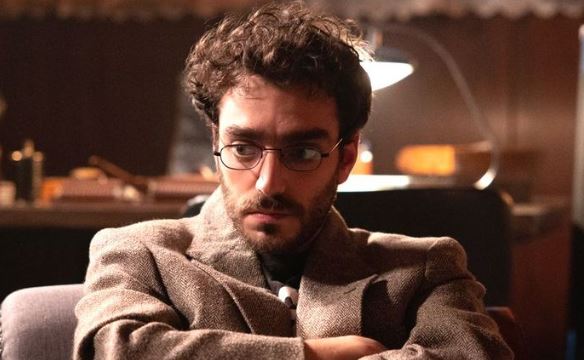We review the brilliant career of the protagonist of the new film by Carlos Vermut, and launch bets for the next Spanish film awards.
When we know the winning names of the 37th edition of the Goya Awards on February 11, we hope that Nacho Sánchez’s for ‘Mantícora’ will be in the Best Actor category (meanwhile, here you will find where to see the films nominated for the Goya 2023 ).
I adore Miguel Herrán and Javier Gutiérrez in ‘Modelo 77’, an excellent chronology of political disenchantment that asked two great actors as a safe-conduct to success. Luis Tosar sweats blood in his constant career, as a street hero, in ‘Márgenes’. At the same time, I don’t understand why we haven’t reserved Denis Menochet’s nomination for another of the many good actors in this good crop of Spanish cinema, that is, the best Spanish films of 2022… On the one hand, Nacho Sánchez represents the generational change that the Goyas are looking for this year and, on the other, in ‘Mantícora’ he weaves an interpretation that is prodigy and containment at the same time.
Today we review his career, to celebrate his beginnings, his turns and the path that lies ahead for this great new-new Spanish cinema.
First big stages, then the small screen
According to IMDb, Nacho Sánchez (Ávila, 1992) began his career on television, but the abulés had been acting professionally in theater since he was 18. Graduated from the Royal School of Dramatic Art in Madrid, he immediately stood out as an exceptional case within the terrible conditions of the acting profession. In fact, he combined his stage and audiovisual career until 2019, within companies such as [los números imaginarios] and Teatro Español, with whom he won the Max Award for Best Leading Actor in 2018.
He appeared on television for the first time in the seventh and eighth episodes of the second season of ‘El ministerio del tiempo’ (one of the best Spanish series in history), entitled ‘Tiempo de valientes’ (there he gave life to a second-rate Rafael Ríos, a gumet for those of you who remember it). It was 2016. From then until 2019, he alternated between secondary roles in series (he appeared in an episode of ‘La zona’, in one also of ‘La catedral del Mar’) and short films in which he developed his muscle as an actor on camera ( in 2016 ‘Take Away’, in 2018 ‘Tame’).
The most important of them would be ‘Ráfagas de vida salvaje’ by Jorge Cantos, winner at the Malaga Film Festival (for Best Director), in Alcalá de Henares and in the Madrid Short Film Week, as well as in the Lab of the prestigious Clermont-Ferrand. In this short, three of the great national names of the current interpretive scene would coexist: Manel Llunell (‘La piedad’), Omar Ayuso (‘Élite’) and Nacho Sánchez himself.
‘Seventeen’ and ‘The art of coming back’
Nacho Sánchez’s film debut was ‘Seventeen’, by Daniel Sánchez Arévalo. In the film, he gave life to Héctor’s older brother (Biel Montoro, at that time practically unknown), a young man who escapes from the juvenile center to look for a dog to whom he has become attached, embarking on a journey that will unite him again. to his brother and will make him find himself. Roger Salvans, in his review of ‘Seventeen’, already highlighted the chemistry between the two actors as the great strength of the film.
Today it is nice to remember the words that Daniel Sánchez Arévalo left us for the role of Nacho Sánchez. He called it, pay attention, “the new Tosar.” He said in an interview with FOTOGRAMAS: “I had seen Nacho in ‘La piedra oscura’ [the play]. He is a force of nature; a small Tosar. He had never been in front of the camera [for movies] , but I had never seen an actor with such instincts. On the first take with him I felt like I was seeing someone important to the industry being born.”
For his role in ‘Seventeen’, he would be nominated for Best New Actor at the Goyas and at the Cinematographic Writers Circle Medals, and for Secondary Film at the Actors Guild awards.
However, just to be nitpicky, we prefer his supporting role in ‘El arte de volver’, a magnificent debut by Pedro Collantes in which Noemí (Macarena García) returned home to realize that his priorities were slightly crooked. In the film, Nacho Sánchez played Carlos, that lifelong colleague with whom the young woman met to take a long walk in the park, “between Eric Rohmer and Antón Chéjov”, as Manu Yáñez describes in his review of ‘El art of returning If the great success of Collantes’s film was to blur his characters, voluntarily losing ourselves along the way so that we would find ourselves at his side, the seed of his bet can be found in Carlos’s portrait.

